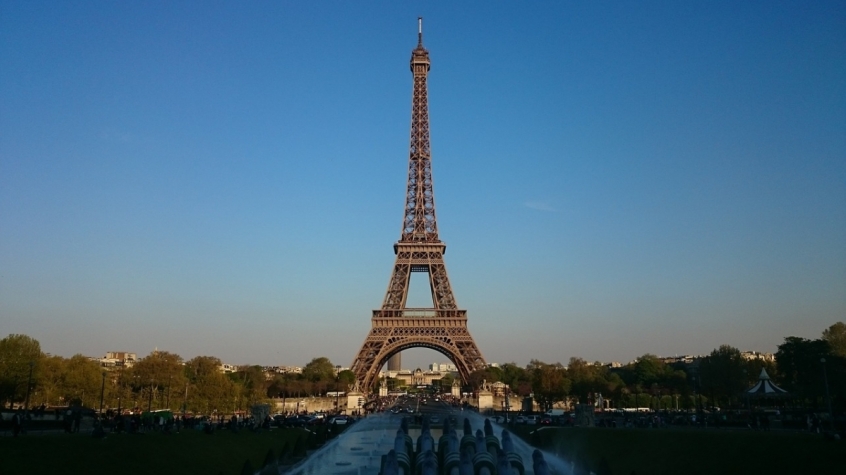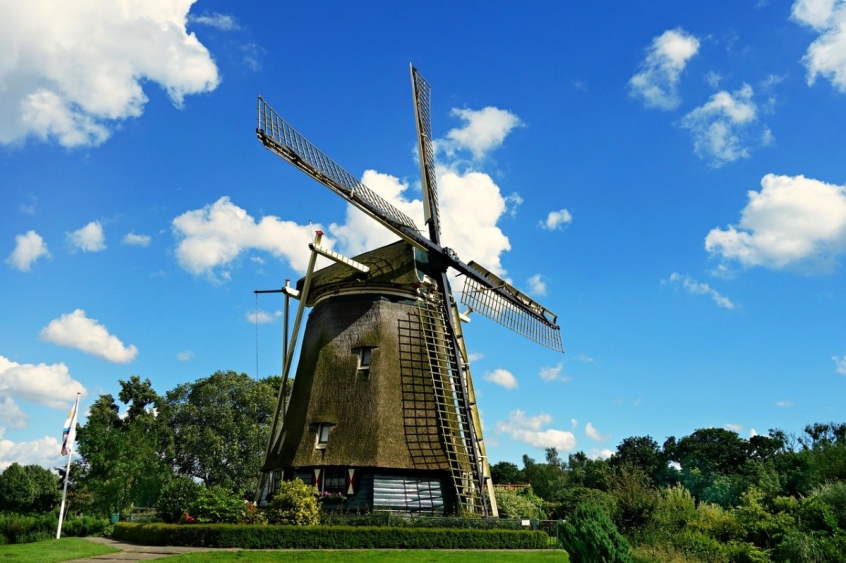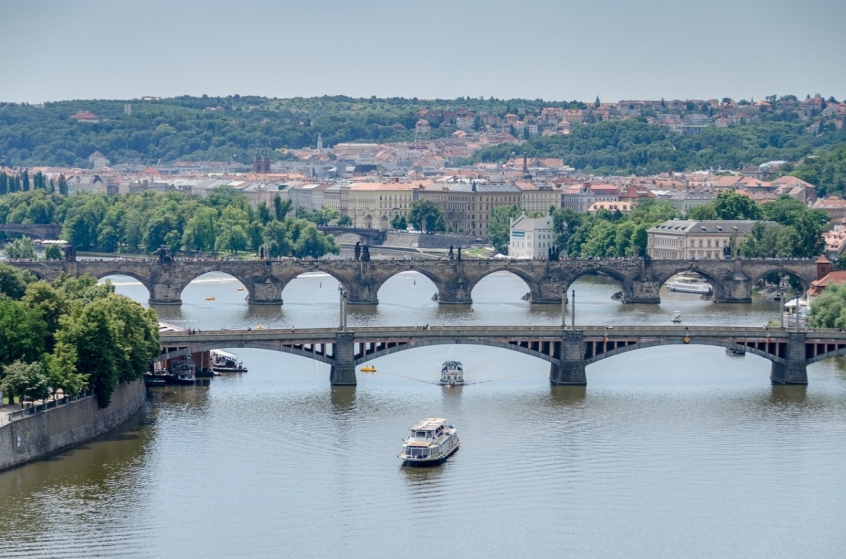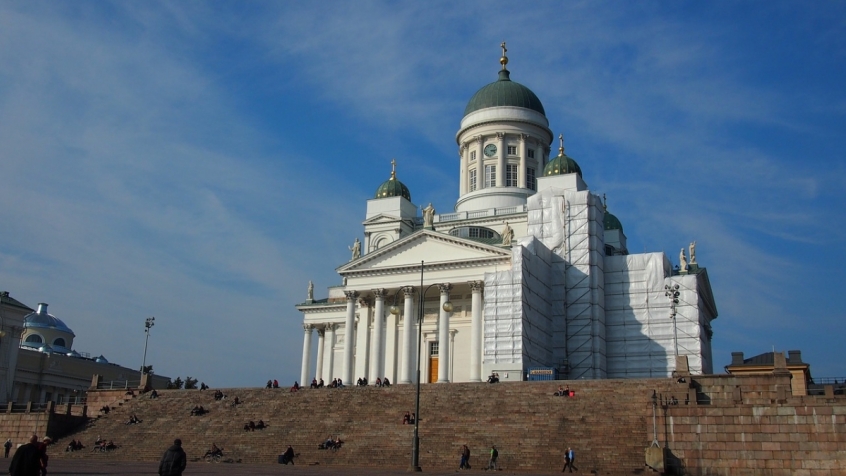
The evangelical Church in Europe is on the precipice. Christianity is thriving in Asia and Africa – with new churches popping up all the time – but in Europe it's decline and more decline. Evangelicals make up just 2.5 per cent of our continent's population. Projections suggest that UK Christianity will be wiped out by 2067. Has the Church, the hope of the world – and of Europe – lost its own hope?
While the media paints an ugly picture, there's another story waiting to be told. It's bubbling out of churches helping Syrian refugees along the Greek coast. It's in the hands of Moldova's Baptist community. It's on the lips of the French woman whose life has been transformed by Jesus' love. Perhaps we've been thinking about the Church in Europe all wrong – we've been seeing numbers instead of people, we've been looking in empty churches rather than at the open hearts on our streets. When we focus on the tomb, we miss the resurrection. There is hope – the Church in Europe is alive.
Yes, it's numerically smaller than it was a generation ago, and we should do something about that. But, equally, the social pressure to go to church in many European countries has gone – so, arguably, the people left in our churches actually believe that Jesus is the saviour of the world. This is what Teun van der Leer, Rector of the Dutch Baptist Seminary, is seeing in the Netherlands. He suggests the fact that some of us still go to church even though we don't have to has left those outside curious about the Christian faith.

"People have a new openness, because the old prejudices against the Church are gone," says Teun. "We need to re-invent the Church in a new way for a new generation. We are in a transformation period and we know not yet what will be. That can make you insecure, but it's also really exciting."
And exciting things are already happening in the Church across Europe. For example, among the Roma, a group marginalised throughout our continent, people are coming to Christ all the time. There's something biblical about that – people on the very edge of society being called in to the heart of the Church. "In Spain, the Roma are now the biggest evangelical group," says Thomas Bucher, General Secretary of the European Evangelical Alliance. "And in the Balkans things have really changed among the Roma. You could almost call what is happening there a revival."

In countries like Norway and the Czech Republic, the evangelical Church is growing, and in France it's happening really quickly – with a new evangelical church being planted every 10 days. Claire-Lise and David Judkins are church planters in the country, sent by UK Christian charity BMS World Mission. Currently, just one per cent of France's population are evangelical Christians, and in Brive-la-Gaillarde, the town where the Judkins are working, there is a strong engagement in folk religion and the occult, with people routinely visiting spiritual healers. In this context, during the last 18 months the Judkins have already seen God work miraculously in people's lives and they recently baptised two new Christians into their church family.
"Because very few people have grown up with the catechism and Bible stories, there's a lot of blank sheets of paper on which to write," says David. "There's certainly an openness and a hunger for authentic spiritual engagement."
People in Europe are growing curious about Christianity – looking into the Church – and the Church is increasingly looking outward. The Church isn't just preaching the words of Jesus, she's modelling them too, and people are beginning to notice. The way the evangelical Church in Europe has responded to the refugee crisis, in many cases leading the way in hospitality and social justice, is one example of this.
"Often, when refugees arrive at their destination and connect with the Church, they say, 'Now I realise: I have actually met Christians all along my journey. I know now who they were,'" says Thomas.
The fact that people are seeing evangelicals across Europe responding to the call to take care of 'the least of these' is surely a sign of hope. And it's not just comfortable, middle-class churches that are doing this. In Moldova, the poorest country in Europe, the Church is responding, from limited means, to its country's people. "We have a strong Baptist presence in Moldova," says Tony Peck, general secretary of the European Baptist Federation. "And churches are routinely helping those who don't have enough to eat; helping those who have got into drugs and alcoholism; supporting others on the margins."

Very often, the people on the margins of society – economic migrants, and in more recent years refugees – are the ones who have helped to revive the Church. In Finland, for example, in many churches more than 50 per cent of regular attenders are migrants. Teun says that, in the Netherlands, "The migrant churches are more and more showing to our broader society that Christianity is still relevant, and you don't have to be white and rich to find it relevant."
But what of the future? There's hope there, too. A future generation of leaders from across Europe is being trained in solid theology and contextual mission practice. Future leaders who are asking tough questions and looking to build up strong disciples. The International Baptist Theological Study Centre (IBTSC) in the Netherlands is one place which is educating these leaders. Its students come from across Europe, from countries like Armenia, Croatia, Czech Republic, Moldova, the Netherlands and Ukraine. "We need leaders who can work out what to do in a changing context," says Stuart Blythe, Rector of IBTSC. "We don't want to train people to do something in a particular way, we want to educate people to think responsibly and theologically in a variety of contexts."
If Europe has strong Christian leaders, trained to respond to our continent's ever-changing reality – leaders who are leading churches and unions which may be small but which are focused on serving the poor and the marginalised, leaders who are taking the opportunities arising from the new openness of Europeans to meet Jesus, and encouraging their congregations to do so too – there has to be hope. God is faithful.
As Christ-followers, we know that God can use anyone, of any age, anywhere. Yes, the majority of people on our continent don't have a relationship with him – and we shouldn't be complacent or naïve. Yes, many of our congregations are ageing. There is a massive need. But that's not the whole story. "When you drill down, you discover God is doing some amazing things, often in unexpected places," says Tony Peck. "He's renewing his Church, and helping it to become more outgoing."
We are a people of hope, with a God who has overcome it all. "Our church may be as small as a mustard seed," says Teun, "but I still believe that it is the hope of the world."
Sarah Stone works for a British Christian mission agency.













